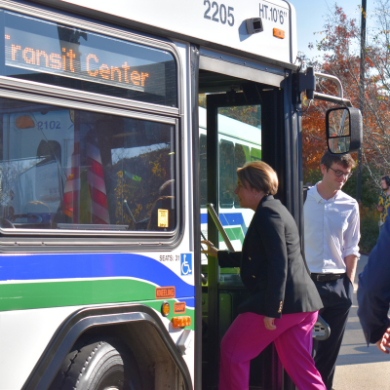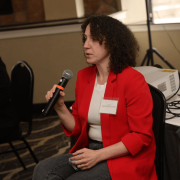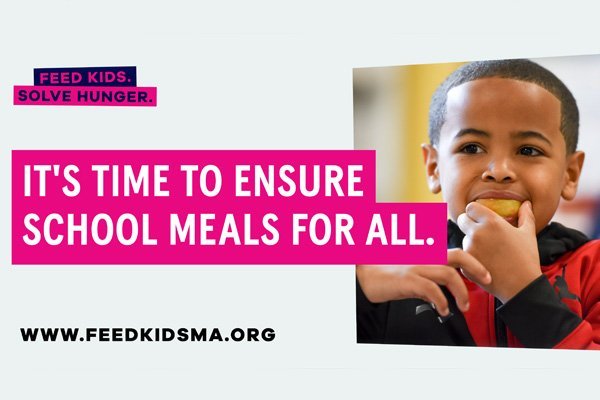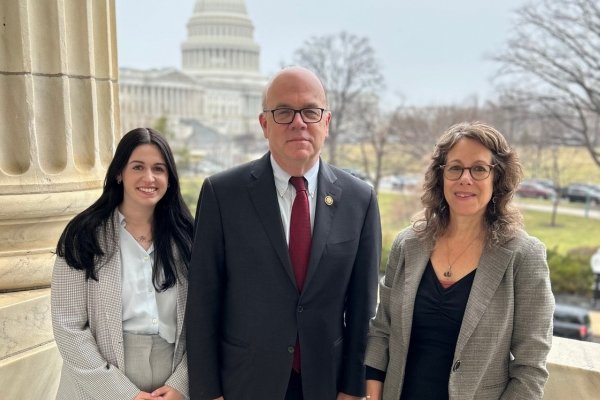Beyond alleviating the symptom of hunger; advocacy addresses the system that creates it
At the Food Bank of Western Massachusetts, we recognize that providing food to community members experiencing hunger is only a temporary fix to larger systemic issues. Real solutions require addressing the drivers of hunger in our region, including institutional racism, transportation access, and economic inequities.
Visit our Advocacy Action Center
From the Action Center, Food Bank advocates can;
- Sign-up for email updates from our Advocacy team on urgent actions.
- Find election resources including candidates and polling places for a district by residential address.
- See active Food Bank advocacy campaigns.
- Contact state and federal legislators in support of key legislation.

2026 Policy Priorities
Approved by the Food Bank Board of Directors each year, our policy priorities are a guidepost for how we approach legislative advocacy.
- Primary Focus policies are led or co-led by the Food Bank, and have the most direct impact on hunger and its drivers.
- Secondary Focus policies have clear impacts on hunger but are not policies we are best positioned to lead advocacy on. Many of these policies protect and strengthen anti‐poverty, anti‐racist, and educational programs.
- Other Supported Policies promote the advancement of equity more generally. These are policies the Food Bank may not engage in direct advocacy for, but officially support.
Federal Public Policy
Primary Focus:
- The Supplemental Nutrition Assistance Program (SNAP) provides money to eligible recipients each month to purchase food. It is a federal benefit administered by the state.
- The Emergency Food Assistance Program (TEFAP) provides food to food banks, which our member food pantries, meal sites, and shelters then distribute to eligible households.
- The Farm Bill is an expansive piece of legislation that governs many nutrition and agriculture programs.
Secondary Focus
- Protect and strengthen anti-poverty programs
- The Earned Income Tax Credit is a refundable tax credit for low- to moderate-income working people with children.
- The Child Tax Credit Expansion was a COVID-era change to the CTC that broadened eligibility and the frequency of disbursements.
- Oppose changes to “Public Charge” and other rules that put vulnerable populations at risk.
- Encourage participation in the democratic process through voter education, registration, and engagement with elected officials.
State Public Policy
Primary Focus:
- The Massachusetts Emergency Food Assistance Program (MEFAP)
- The Hunger‐Free Campus Initiative
- HIP—the Healthy Incentives Program
- Regional Transportation Advocacy with the Western MA Transportation Advocacy Network
- Bridge to Prosperity Cliff Effect Pilot
- The establishment of a commission to study the strengths and sustainability of the state’s food access network, H.118.
- Funding for nutrition education to replace SNAP-Ed funding eliminated in H.R. 1.
Secondary Focus
- Support state-level work to implement relevant pillars of the White House National Strategy on Hunger, Health, and Nutrition.
- An Act fostering agricultural resilience in MA, S.55/H.112
- An Act encouraging the donation of food to persons in need, S.1043/H.3154.
- An act ensuring tuition equity at the Stockbridge School of Agriculture, S.920.
- Expand food literacy in MA schools, S.392/H.735.
- Proposal for a legislative amendment to the constitution relative to agricultural and horticultural lands, S./HD.2701.
Other Supported Policies
- Affordable housing and utilities
- Access to affordable services/education, such as childcare, higher education, behavioral health services, substance abuse treatment, and services for seniors and people with disabilities.
- Universal access to affordable health insurance.
- Farm to School initiatives.
- Support other organizations’ policy priorities when overlapping and appropriate.



Coalition Highlight
Western Massachusetts Transportation Advocacy Network
WMTAN is a collective of transportation advocates, enthusiasts, and users imagining a more connected future for Western Massachusetts.
Gaps in the region’s transportation are complex. Lowering barriers to access and increasing the variety and flexibility of services offered lets the network meet people where they are- and where they need to be.
Previous Initiatives

Universal School Meals
Led by Project Bread, An Act Relative to Universal School Meals (S.314 and H.714) ensured that all K-12 students in Massachusetts have access to free meals at school.


Breakfast after the Bell
Headed by the Rise & Shine MA coalition, this bill greatly expanded access to free breakfast during the school day for K-12 students in Massachusetts.
Coalition Highlight
Supporting our Students: The Hunger Free Campus Coalition
Led by the Western Massachusetts and Greater Boston Food Banks in partnership with student advocacy group MASSPIRG to address food insecurity among college students on Massachusetts Campuses.
Community Partnerships and Coalitions
- Coalition to End Hunger
- Council of Social Agencies (COSA)
- Economic Pathways Coalition
- Feed Kids MA Coalition
- Food Security Working Group (UMass)
- Franklin County Food Council
- Greater Quabbin Food Alliance
- Greenfield Housing Authority
- Hampshire County Food Policy Council
- HCHIP (Hampden County Healthy Incentives Program)
- Hunger-Free Campus Coalition
- Lift Our Kids Coalition
- Local Option for Housing Affordability (LOHA) Coalition
- MA SNAP Coalition
- Make Hunger History Coalition
- Massachusetts Immigrant & Refugee Advocacy (MIRA) Coalition
- MLRI
- Northeast Regional Anti-Hunger Network (NERAHN)
- Pioneer Valley Workers Center
- RTA Advocates
- SNAP Gap/Common App Coalition
- Springfield WORKS
- Western Mass Health Equity Network
- Western Mass Network to End Homelessness
- Western Mass Transportation Advocacy Network
Coalition Highlight
Increasing Opportunity: The Economic Pathways Coalition
Co-run by the Food Bank, this group seeks to alleviate the Cliff Effect, a phenomenon that occurs when a small pay increase causes a low income worker to loose a disproportionate amount of benefits, leaving them financially worse off.


